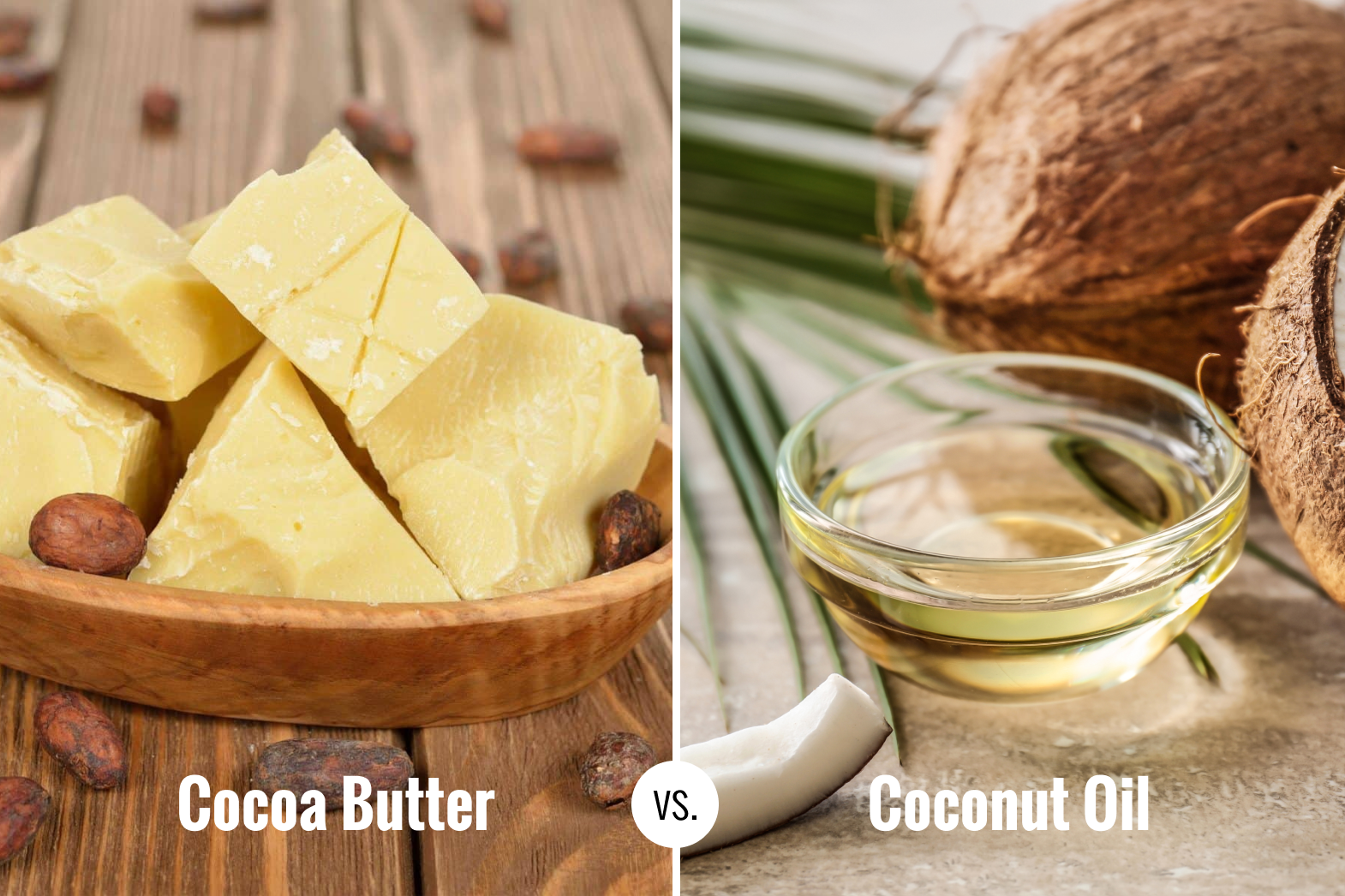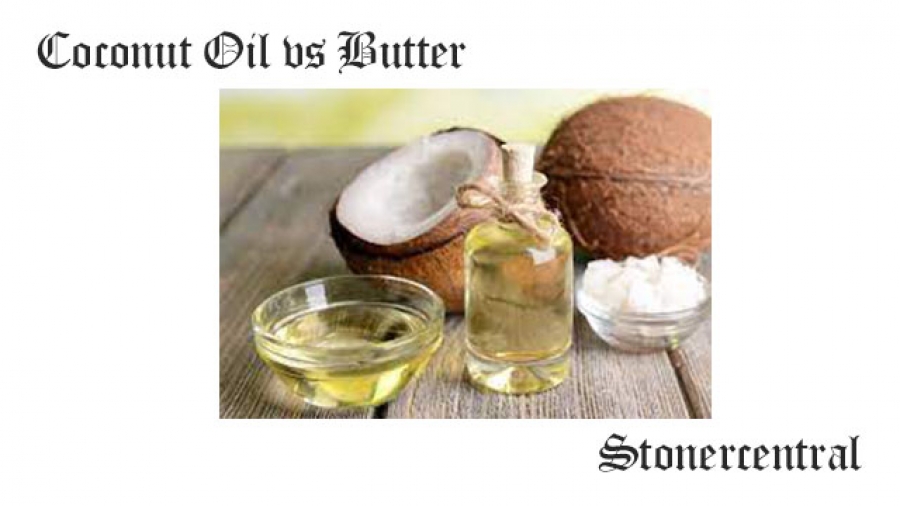Most people are familiar with coconut oil. It’s frequently in the health and wellness spotlight. Coconut butter isn’t as well-known. The two products look and smell similar, but each has different characteristics. Here’s a look at the benefits of each.
What’s the difference between coconut oil and coconut butter?
Coconut oil is made by cold-pressing oil from coconut meat. It’s solid at room temperature, and becomes liquid when heated. It has an oily, mild to medium intensity coconut flavor and odor.
Coconut butter is arguably the peanut butter of the tropics. It’s made by pureeing coconut meat, including the oil. The spread is solid at room temperature and softens when heated. The end result is a spread with strong coconut flavor and odor.
Pros of oil
- It’s good to cook with and can withstand moderate to high temperatures.
- It has many home and beauty uses.
- It can be used as a substitute for oil and butter in baking.
Coconut oil and coconut butter nutrition
Coconut oil is made entirely of fat, mostly saturated. One tablespoon has around 14 grams.
Coconut butter is made from the whole coconut, so it also contains saturated fat, around 10 grams per tablespoon. It has nutrients coconut oil doesn’t, most notably fiber. One tablespoon of coconut butter has about 2 grams of dietary fiber.
Other nutrients in coconut butter are:
- protein
- potassium
- magnesium
- iron
Coconut oil Trusted Source and coconut butter are high in calories. Depending on the brand, both products have about 110 to 120 calories per tablespoon.
Are coconut oil and coconut butter good for you?
The high saturated fat content in coconut oil and coconut butter is controversial. The American Heart Association (AHA) warns that a diet high in saturated fats leads to high cholesterol and increases your risk of heart attack and stroke.

Coconut advocates argue that most saturated fat research is outdated. They argue that most of the saturated fat is lauric acid, so it actually increases your so-called good cholesterol and decreases your risk of disease.
Lauric acid hasn’t been researched as much as other types of saturated fat, but at least one small study supports that it benefits cholesterol. The study on 32 healthy men and women found that eating solid fats rich in lauric acid resulted in a better cholesterol profile than eating trans fats.
After a 2010 meta-analysis found that saturated fat was not associated with an increase in cardiovascular disease, the coconut waters became murkier. The meta-analysis did not result in the AHA or most cardiologists revising their position on saturated fats, but it has raised legitimate questions.
Time and more research will solve the controversy. But how coconut oil and coconut butter impact your risk of heart disease today may ultimately depend on many factors, including your activity level and overall diet.
Saturated Fats: Both butter and coconut oil, in terms of nutrition, are loaded with saturated fats. That means:
- 87 percent of coconut oil’s fats-or 12 grams per tablespoon-is saturated fat
- and
- 51 percent of the fats in butter-or 7 grams per tablespoon-is saturated fat
Nutrition guidelines, including the U.S. Dietary Guidelines and those of the American Heart Association, still recommend keeping saturated fat to 7 to 10 percent of total daily calories or less.
That means if you average around 2,000 calories daily, you should limit your intake to just 16-22 grams of saturated fat per day.
Despite a recent review of research that suggested a low-saturated-fat diet doesn’t seem to reduce heart disease risk, not all saturated fats are created equal.
Possible Benefits: Some of the saturated fatty acids in coconut oil and butter are medium-chain fatty acids (MCTs), which are broken down in the body differently from other fats and may be less likely to be stored as fatty tissue, possibly helping promote weight loss.
Coconut’s main saturated fatty acid is the MCT lauric acid-and research suggests that while it raises unhealthful LDL cholesterol, one of the benefits of coconut oil is that it also boosts beneficial HDL cholesterol, and thus may have a neutral effect on heart disease risk.
Butter also contains a fair amount of vitamins A and D, along with vitamin K2 (a heart-friendly vitamin associated with less buildup of fatty plaques in arteries). And particularly when it comes from grass-fed cows, butter provides a small amount of conjugated linoleic acid, a naturally occurring fat that may have metabolism-revving effects and other possible health benefits.
Less-Healthy Fats: But-in a wonderful example of Mother Nature’s inherent checks and balances-both butter and coconut oil also contain some of the less-healthy saturated fatty acids, including myristic and palmitic acid, which have been linked to higher buildup of fatty plaques in arteries. (Butter’s main fatty acid, in fact, is palmitic.)
Bottom line: Coconut oil and butter are not “nutritional wonders” nor are they evil, and the saturated fat they contain isn’t the whole story.
At least until more is known, you’re better off using either one in moderation and getting the bulk of the fats you eat and cook with from heart-smart unsaturated sources, such as olive and canola oils and fatty fish.
Cooking with coconut oil and coconut butter
Coconut oil is mainly used as cooking oil. Refined coconut oil has a high smoke point and can withstand high-heat cooking. It’s great for frying and sautéing. Extra virgin coconut oil has a lower smoke point and is generally recommended for temperatures of 350°Fahrenheit or less.
Coconut oil can be spread on toast and substituted for butter, shortening, and vegetable oil in baking. Keep in mind the flavor of extra virgin coconut oil is not as neutral as other oils and adds a moderate coconut taste to baked goods. Refined versions have slight to no coconut flavor.
Coconut butter is delicious straight from the jar. It can be spread on almost anything. It’s tasty as a butter substitute on your morning toast or bagel. Try:
- adding coconut butter to smoothies
- melting it and drizzle over fresh fruit or frozen yogurt
- stirring it into oatmeal
- adding it to a piña colada
Coconut butter burns easily and isn’t your best bet for stovetop cooking over anything higher than very low heat for a brief time. It’s perfect for making fudge and candies and may be substituted for butter or oil. It will add a strong, sweet, coconut flavor to your recipes.

I’ve recently purchased coconut oil off of Amazon and I can’t wait for it to get here. But I was wondering… which foods do you guys prefer to cook with coconut oil and which foods do you prefer to cook with butter instead?